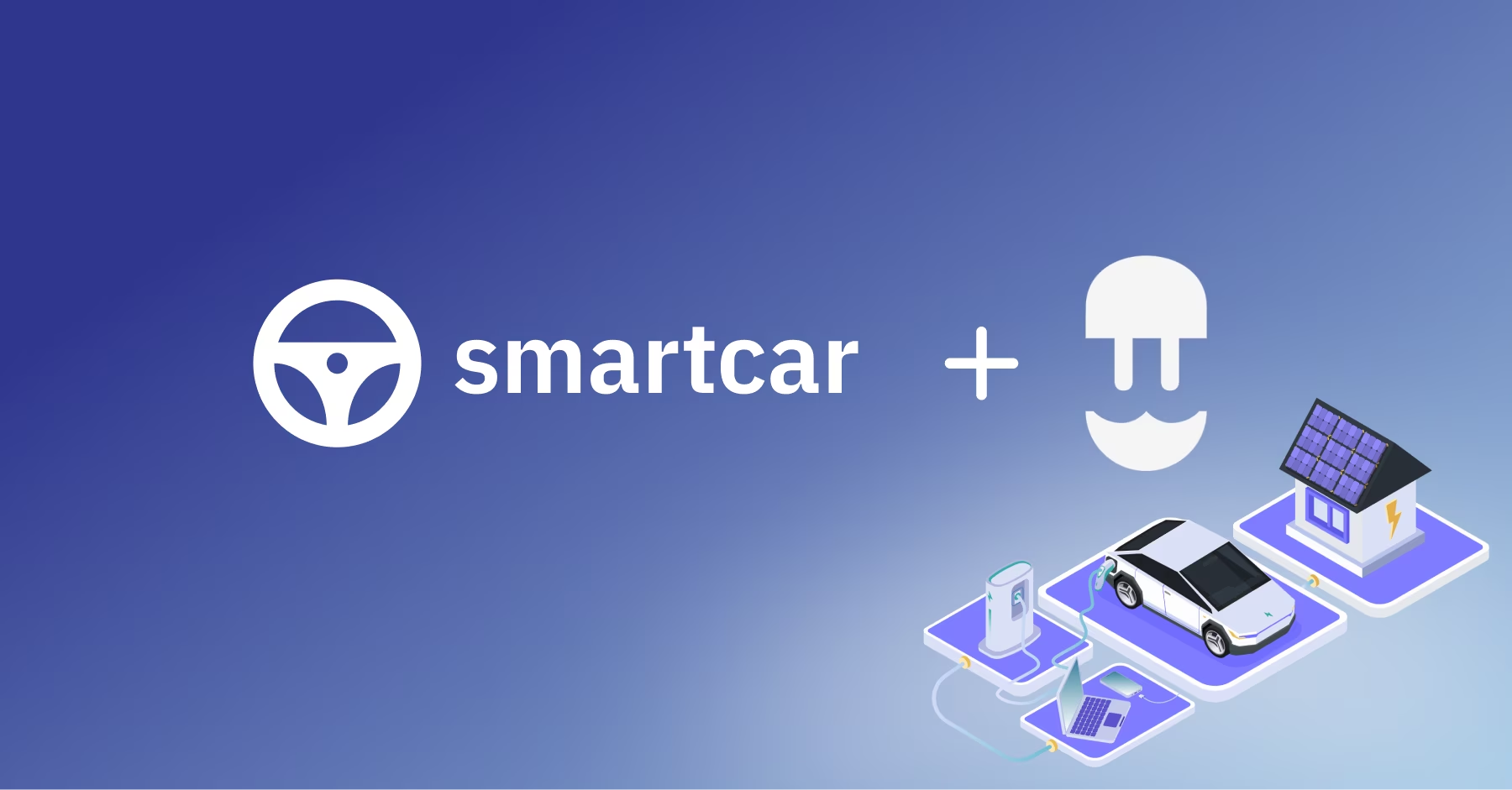Last week, Smartcar CEO Sahas Katta was featured on The Insurance Podcast, the world's leading podcast in the P&C insurance sector hosted by Pete Tessier. In the episode, Pete and his co-host Curt Wyatt talk with Sahas about how auto insurers use the Smartcar API and how our product helps change the industry's conversation around consumer privacy and user consent.
The podcast is available on Spotify, Google Podcasts, and Apple Podcasts. Below, we have summarized the highlights for you.
"Smartcar is an API for vehicles"
Pete: Let's talk about Smartcar('s) technology and what exactly it is. Is it an evolution of telematics? Is it an interactive vehicle sharing application? Or is it data management for someone who wants to run a fleet? It does a lot of things. How do you describe it?
Sahas: Smartcar is an API for vehicles. (…) Our technology makes it possible for all the different businesses you mention from fleet management to car rental companies or even auto insurers—which is why we're here on this podcast today—to build applications that can integrate with cars very easily.
Collecting user consent with Smartcar Connect
Pete: When I'm looking at this kind of technology, then I'm trying to understand: (...) Are (vehicle owners) giving up data back to the insurance company that the insurance company is going to use, and are they actually aware of it? It seems to me there's always the option of the telematics issue that comes into play where we have driver behavior and other things that are happening in this that the consumer sort of doesn't really understand.
Sahas: Great question. This is actually something that was really core and fundamental to the founding principles at Smartcar. We don't store any customer data. So, whether it's a car's location or odometer reading, we don't have a database of that. We don't sell that. We don't have anything to sell. Rather, what we've done at Smartcar is, on one side, make it real easy for these insurance companies to integrate with a large number of car brands with a technology like Smartcar.
The second piece really touches on the question you just asked, which is user consent. We've created a product called Smartcar Connect that each insurance company needs to place within their own application. It's a three-click flow that the end-customer needs to go through to link their vehicle to their insurance company's application and grant it permissions to the capabilities that their car has to offer—whether it's being able to share their odometer reading or the location of the car with their insurer.
The insurer can't just pick a customer's VIN or name and pull information out of that vehicle, but rather the user has to explicitly go through a consent flow and accept a set of permissions just like you do when you install an app on your phone. You have to give it access to that location permission or the contact book or the camera roll. You have to hit “Allow,” and it's no different with Smartcar.

"Let's put control back in the customer's hand"
Pete: So when you were talking a little bit about privacy, (...) one of the big differences in particular when you look at federal and state laws and then also between countries is (that) privacy is a totally different world for (Canada) and the EU compared to the United States. Do you think you're being more of a thought leader and progressive when it comes to addressing privacy concerns? Because data sharing and data availability is a huge thing for businesses, particularly multinationals, which insurance companies usually are. This is a bit of a departure from things we see in the industry, is it not?
Sahas: Absolutely. I think the way that the world is moving is around user consent, transparency, and the ability for users to actually opt-in voluntarily. We actually feel that the auto industry and insurance industry (were) on the wrong path. There (were) these notions of data aggregators and monetizing data and selling customer information. These things were tucked away under some massive terms of service or privacy policies you sign when you buy a car without realizing it. That is not the right way for the future.
The way things are now moving is that users need to get a pop-up and in that pop-up, they go through a consent flow and they agree to (...) a permission that's presented to them on-demand when that exchange actually needs to occur. (...) Every Android device and every iOS device has been using this model since their inception, and it's been missing from the automotive industry. And we're bringing that paradigm back and saying: (...) Let's put control back in the customer's hand.




.png)
.jpg)
